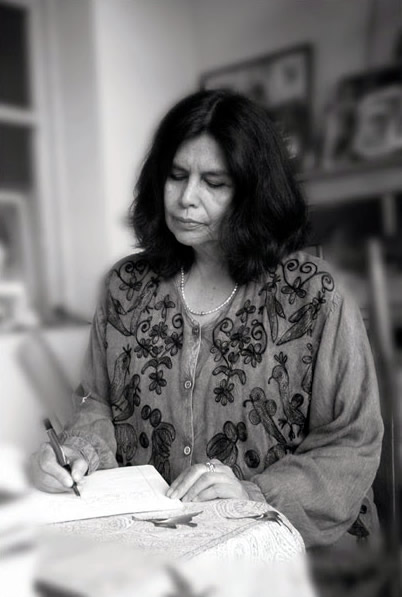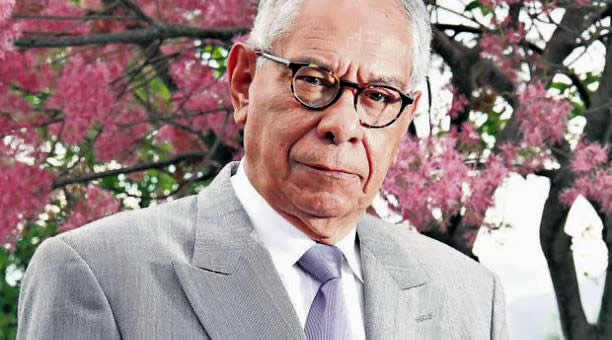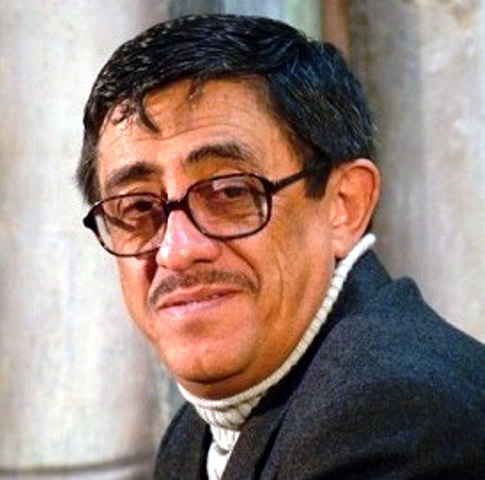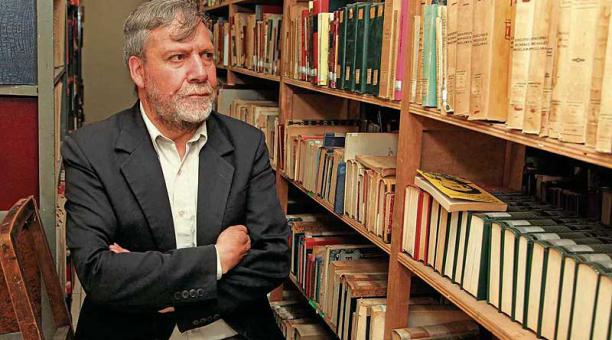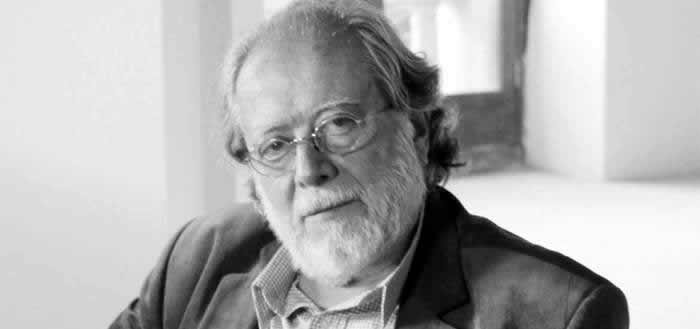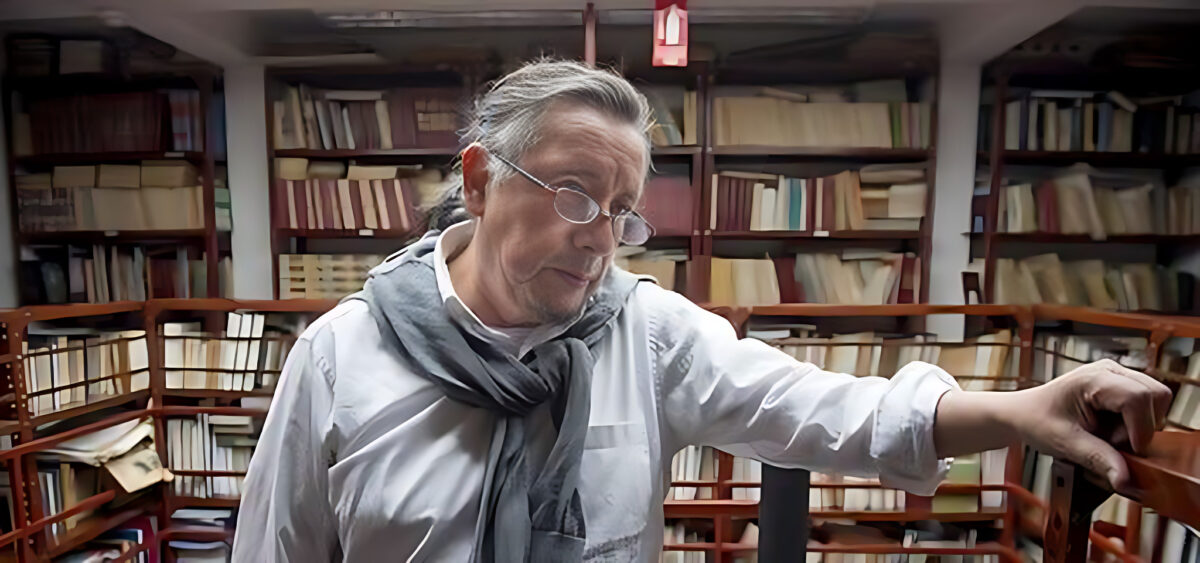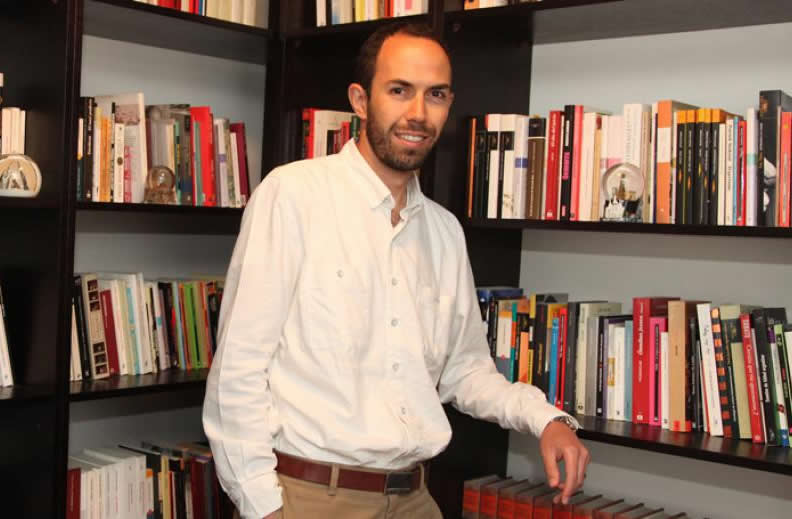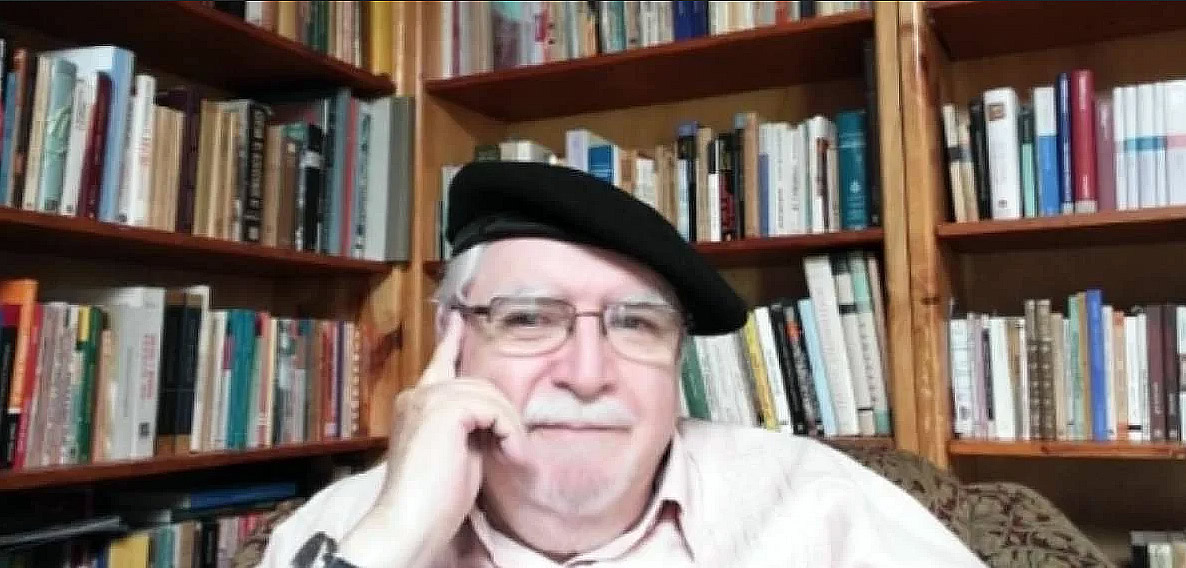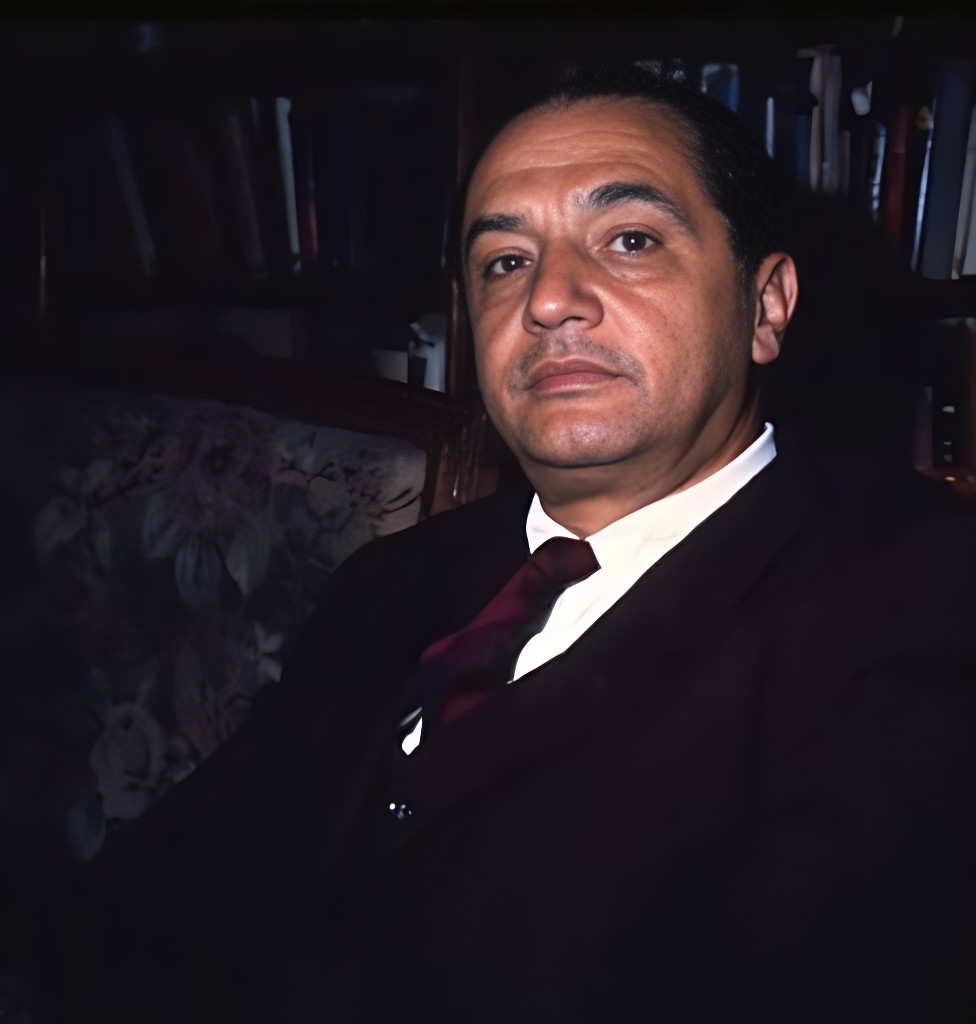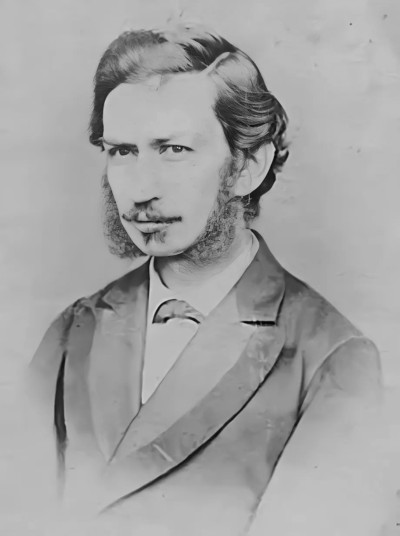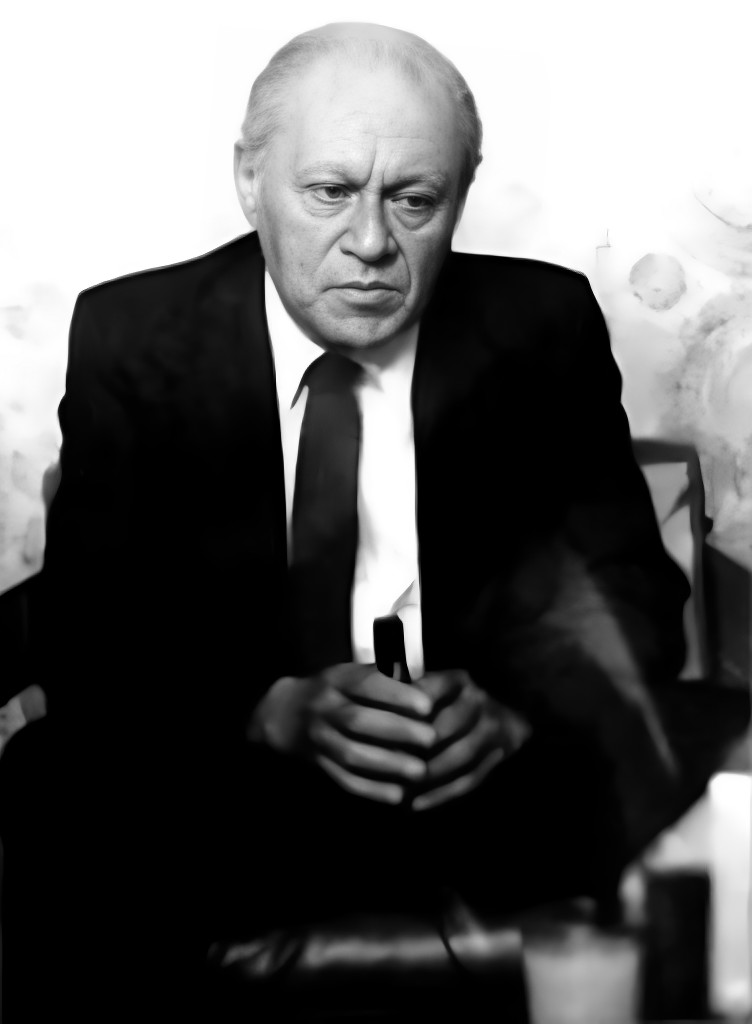Natasha Salguero Bravo (Quito, October 2, 1952) is a prominent Ecuadorian novelist, poet, journalist, and nonfiction writer. In 1989, she became the first woman to win the prestigious Aurelio Espinosa Pólit National Literature Prize for her novel Azulinaciones, which she submitted to the contest under a male pseudonym. That same year, she won the Gabriela Mistral Poetry Prize. Her work, known for exploring themes of feminism, social decay, and political repression, has been widely translated and featured in international anthologies, establishing her as a leading voice in Ecuadorian literature.
Continue reading “Natasha Salguero”Category: Ecuadorian Novelists
Ecuadorian novelists, including stories, translations, bibliographies, biographies, interviews, articles, and much more. Novelists from Ecuador in one place.
Marcelo Lalama Basante
Marcelo Lalama Basante (Riobamba, 1942 – Quito, 2017) was an Ecuadorian novelist and a medical doctor. His debut novel “Los Nazarenos” won the Aurelio Espinoza Pólit Prize in the year 2000 and the Joaquín Gallegos Lara Prize in 2001. His other works include “Santamaría de los Volcanes” (awarded First Prize in Literature from the Central University of Ecuador in 2008) and “Hospital Real de la Misericordia” (2013).
Continue reading “Marcelo Lalama Basante”Jorge Dávila Vázquez
Jorge Dávila Vázquez is a writer, professor and film critic. Dávila Vázquez was born on February 14, 1947 in Cuenca, Ecuador. Dávila Vázquez has written novels, plays, short stories, poetry and nonfiction. He is a two-time recipient of the prestigious Aurelio Espinosa Pólit Prize, for his experimental novel María Joaquina en la vida y en la muerte (1976), and for his short story collection Este mundo es el camino (1980). His short story book El libro de los sueños (2001) won the Joaquín Gallegos Lara Prize. In 2016, Dávila was awarded Ecuador’s top literary prize, the Eugenio Espejo Award.
Continue reading “Jorge Dávila Vázquez”Eliécer Cárdenas
Eliécer Cárdenas Espinosa (Cañar, December 10, 1950 – Cuenca, September 26, 2021) was a renowned Ecuadorian novelist, playwright, short story writer, and journalist. Best known for his novel Polvo y ceniza (1979), which remains the best-selling novel in Ecuadorian history, Cárdenas’s works often focused on social justice, indigenous struggles, and the working-class experience in Ecuador. His prolific career included over 20 books across multiple genres, with notable accolades such as the House of Ecuadorian Culture Prize for Polvo y ceniza and the Aurelio Espinosa Pólit Prize for his play Morir en Vilcabamba. Cárdenas also served as editor-in-chief of El Tiempo newspaper in Cuenca and was a corresponding member of the Ecuadorian Academy of Language.
Continue reading “Eliécer Cárdenas”Iván Égüez
Iván Égüez (Quito , 1944) is an Ecuadorian novelist, short story writer, and poet. He has written 7 novels, 7 short story books, and 6 poetry books. His novel “La Linares” was the first recipient of the prestigious Aurelio Espinosa Pólit National Literature Prize in 1975. Controversy ensued when the Pontifical Catholic University of Ecuador, which awards the prize, announced “La Linares” as the prize’s winner, because the book’s main protagonist is a prostitute. It has since gone through a dozen editions in Ecuador and abroad and has been translated into several languages. The “La Linares Short Novel Prize,” which is awarded by the Eugenio Espejo Campaign for Books and Reading, bears the name of Égüez’s groundbreaking work. He was also well known nationally and internationally for his poetry books.
Continue reading “Iván Égüez”Huilo Ruales
Huilo Ruales Hualca (Ibarra, Ecuador, March 25, 1947) is a prominent Ecuadorian writer whose work spans multiple genres, including novels, short stories, poetry, theater, and chronicles. Known for his exploration of marginalized characters and social outcasts, Ruales’ gritty and poetic prose has garnered significant recognition, including the Premio Joaquín Gallegos Lara (1989) and the Premio Aurelio Espinosa Pólit (1994). His writing has been translated into several languages, and he currently resides in Paris, France.
Continue reading “Huilo Ruales”José Hidalgo Pallares
José Hidalgo Pallares (Quito, 1980) is an Ecuadorian economist, novelist, and short story writer. He is the author of the short story books La vida oscura (2003) and Historias cercanas (2005, winner of the Joaquín Gallegos Lara Prize), and El manual de la derrota (2019, winner of the Joaquín Gallegos Lara Prize). His novels include Sábados de fútbol (2007) and La búsqueda (2013). His short stories have also been published in anthologies in Ecuador, Argentina, Chile, Cuba and the United Kingdom.
Continue reading “José Hidalgo Pallares”Juan Valdano
Juan Valdano Morejón (Cuenca, December 26, 1939 – Quito, August 2, 2021) was an award-winning writer of over 30 books encompassing a variety of genres, such as novels, short stories and nonfiction. He was a corresponding member of the Royal Spanish Academy and an honorary member of the Ecuadorian Academy of Language. He was awarded Ecuador’s top literary award Premio Eugenio Espejo in 2020. He also won the Joaquín Gallegos Lara Prize three times. Director Camilo Luzuriaga adapted his 1990 historical novel Mientras llega el día into a film in 2004.
Continue reading “Juan Valdano”Jorge Enrique Adoum – La Caja de Pandora Interviews – Part 1 and 2 (Spanish Audio)
Jorge Enrique Adoum was among Ecuador’s most brilliant writers. In these interviews, made in the latter part of his life, Adoum shares his experiences as a poet, novelist, playwright, politician and diplomat on an Ecuadorian TV program called La Caja de Pandora. Adoum also discusses some of his books, including Ecuador Amargo (1949), Entre Marx y Una Mujer Desnuda (1976), and De Cerca y de Memoria: Lecturas, Autores, Lugares (2002). Adoum was born in Ambato, Ecuador in 1926 and died in Quito, Ecuador on July 3, 2009. He was awarded the nation’s top literary award Premio Eugenio Espejo in 1989.
Jorge Icaza reading from his prose (Spanish audio)
Ecuadorian novelist and playwright Jorge Icaza (1906-1978) reading from his prose. Recorded May 2-3, 1961, at the Casa de la Cultura Ecuatoriana, Quito.
Continue reading “Jorge Icaza reading from his prose (Spanish audio)”Jorge Icaza
Jorge Icaza Coronel (Quito, June 10, 1906 – Ibidem, May 26, 1978) is indisputably the most renowned Ecuadorian author of the 20th century. His impactful storytelling, exemplified in critically acclaimed novels such as “Huasipungo” and “El Chulla Romero y Flores,” presented an unflinching portrayal of Ecuadorian societal conditions, particularly the trials of indigenous and mestizo communities. Icaza’s “Huasipungo,” which brought the issue of rural exploitation to the global stage, has been translated into more than 15 languages, including two English versions, signifying his far-reaching influence. His status as Ecuador’s literary giant is not just confined to his homeland; his work has significantly shaped Latin American literature. His later role as Ecuador’s ambassador to Russia further exemplifies his multifaceted contributions. Icaza’s legacy has transcended time; his work continues to inspire and influence, marking him as a towering figure in Ecuadorian and Latin American literature of the 20th century.
Continue reading “Jorge Icaza”Jorge Enrique Adoum Interviewed on CUNY TV (1998) Spanish Audio
Taped: 3/6/1998)
Length: 28:31
Hosts Jose Maria Conget and Raquel Chang-Rodriguez interview Ecuadorian writer, poet, politician and diplomat, Jorge Enrique Adoum, about his books. “Ecuador Amargo” and “Entre Marx y una Mujer Desnuda,” a novel that was made into a film.
Continue reading “Jorge Enrique Adoum Interviewed on CUNY TV (1998) Spanish Audio”Juan León Mera
Juan León Mera Martínez (Ambato, June 28, 1832 – Ambato, December 13, 1894) was an Ecuadorian poet, novelist, essayist, politician and painter. In 1865 he penned the lyrics for Ecuador’s National Anthem “¡Salve, Oh Patria!” and in 1879 he wrote the novel “Cumandá” which is regarded as Ecuador’s first full-length novel. The novel’s complex characters, lyrical prose, and riveting plot, set against the backdrop of the Amazonian jungle, have made it a revered classic that continues to captivate readers to this day. Juan León Mera was a member of the Ecuadorian Academy of Language, and a corresponding member of the Royal Spanish Academy of Language.
Continue reading “Juan León Mera”Demetrio Aguilera Malta
Demetrio Aguilera Malta (Guayaquil, May 24, 1909 – Mexico, December 28, 1981) was a multi-talented artist and diplomat born on May 24, 1909, in Guayaquil, who excelled in various fields such as novel writing, short stories, painting, film making, and playwriting. He gained prominence with his book of short stories “Los que se van: cuentos del cholo y del montubio” in 1930, co-authored with Joaquín Gallegos Lara and Enrique Gil Gilbert. Some of his other noteworthy works include the novels “Don Goyo” (1933), “Seven Serpents and Seven Moons” (1970) which was translated into English by Gregory Rabassa, and “El secuestro del General” (1973). In 1981, he was awarded the Premio Eugenio Espejo, the highest literary honor in the country.
Continue reading “Demetrio Aguilera Malta”